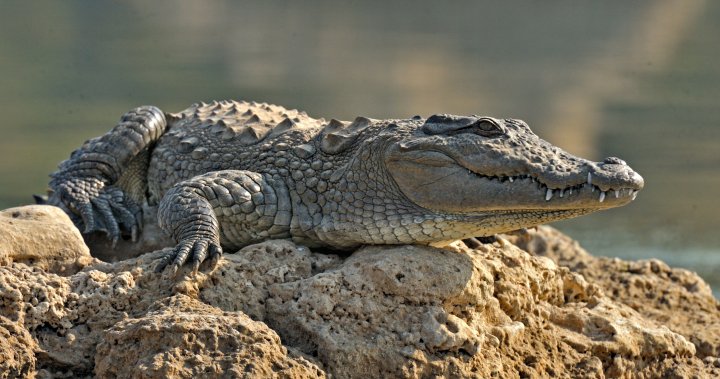Crocodile found to have impregnated itself in 1st-known ‘virgin birth’ for species – National | Globalnews.ca
A female crocodile from a zoo in Costa Rica was able to impregnate herself in what scientists are now calling the first-known case of a “virgin birth” for the species.
The crocodile, who has apparently not had contact with a male crocodile in nearly 16 years, was able to produce an egg containing a fetus that was 99.9 per cent genetically identical to herself.
Details about the crocodile’s virgin birth, also called facultative parthenogenesis, were published in the scientific journal Biology Letters on Wednesday.
Researchers wrote the crocodile, which lives in captivity in Parque Reptilania, may have inherited the ability for asexual reproduction from an evolutionary ancestor. Certain species of birds, fish and reptiles are capable of virgin births, though a case involving a crocodile has never been documented.

In the journal, researchers said the crocodile’s virgin birth offers “tantalizing insights” into whether dinosaurs — an ancestor of the crocodile — may have also been able to reproduce asexually.
The 99.9 per cent genetically identical fetus was found amid 13 other eggs birthed by the 16-year-old crocodile inside her enclosure in 2018. None of the 13 other eggs hatched, and only one contained a fully formed fetus. The fetus was stillborn.
It is possible other crocodiles have also had virgin births, but none has been recorded. The research paper recommends that crocodile eggs be monitored and analyzed, even those that come from a mated pair of reptiles, to potentially identify more cases of virgin births. Since scientists were previously unaware a virgin birth was possible for a crocodile, many could have been missed.
The female crocodile was placed into captivity in Costa Rica in 2002 when she was two years old. She has been isolated from other crocodiles since.
Scientists do not know for certain why some species are capable of virgin births. Many theorize the ability may come when animals are facing difficult environmental conditions or possible extinction.
© 2023 Global News, a division of Corus Entertainment Inc.
For all the latest world News Click Here




